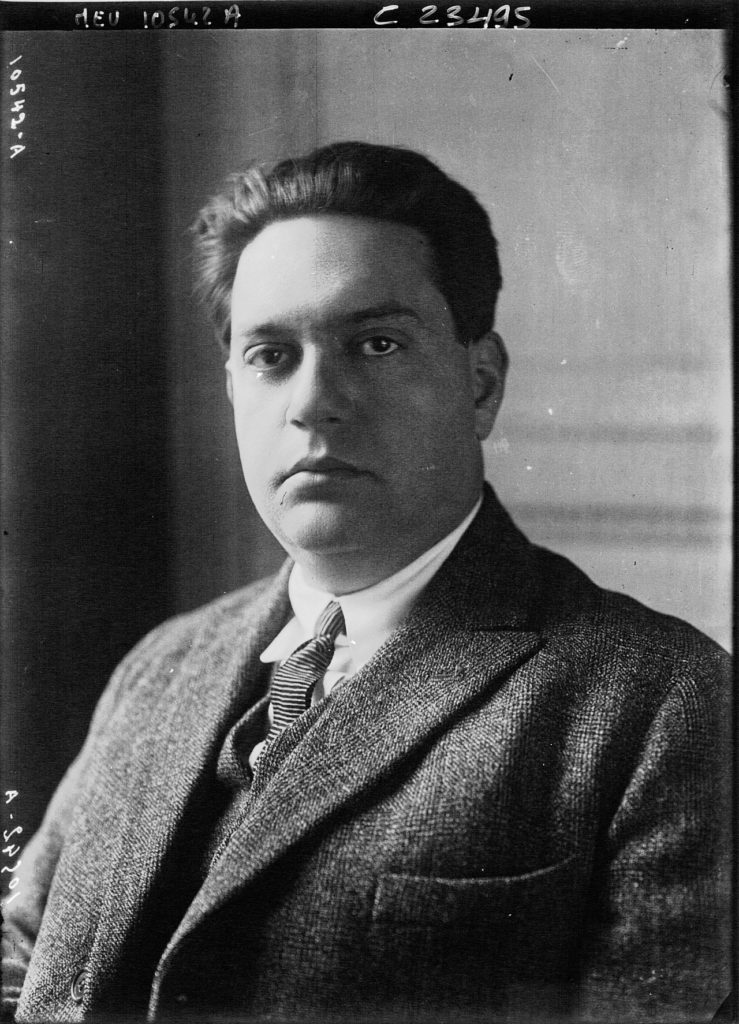Yesterday’s Music History Monday post celebrated – in part – George Gershwin’s An American in Paris, a work inspired by two visits to Paris (one in 1926 and the other in 1928). Taking our cue from An American in Paris, today’s Dr. Bob Prescribes post might be called “A Frenchman in Rio”, as it celebrates a work by the French composer Darius Milhaud (1892-1974) inspired by an extended stay in Rio de Janeiro.
The Happiest of Composers

There are few more enduring musical stereotypes than that of the unhappy, alienated, suffering composer whose inspiration must be torn from the deepest and darkest places of their soul. It was Richard Wagner (1813-1883) who formalized this impression by claiming that serious art – “true art” – can only spring from suffering, from pain, from loneliness and from frustration.
In 1958, Darius Milhaud received a letter from young French composer who was deeply troubled by Wagner’s dicta and wanted to know what Milhaud thought about it all. Milhaud responded:
“I am glad you decided to write me about your problem; here is my point of view if you want it. I had a marvelously happy childhood. My wife is my companion, my collaborator; we are best friends and this gives me happiness. My son is a painter who works incessantly, and he is sweet and loving to his parents Thus I can say that I’ve had a happy life, and if I compose it is because I am in love with music and I wouldn’t know how to do anything else. Your Wagner quote proves to me once again that he was an idiot.
You will probably think that I’ve been very lucky, and you’re right. But even if a composer does have a difficult and unhappy life, he still writes out of love (look at Schubert), and it’s in that love that he finds consolation and a reason for living. The idea that you can only make a work of art out of repression, semi-hysteria, or having your nose constantly out of joint, seems to me the most infantile and superficial notion anyone can have.”
In 1952, Aaron Copland described Milhaud and his music this way:
“Others write music to express themselves; Milhaud, like no other composer I know, writes music to celebrate life itself.”
For Darius Milhaud, the actual act of composition was not just a joyful thing but it was also, not coincidentally, seemingly effortless. He composed exclusively using a fountain pen and never a pencil. Why? Because pencils have erasers and Milhaud never required an eraser. Milhaud’s obituary in The New York Times, dated June 25, 1974, explains:
“Those who saw him at work said he never changed a note once it was down on paper. No rough drafts, no scribbling in notebooks, as with Beethoven and others. Milhaud did not compose at the piano, but simply wrote swiftly, as if transcribing from another copy, having the piece firmly composed in his head, like Mozart. He refused to discuss his style, insisting that ‘every work brings its own style, its own form; you cannot talk about a style.’”
The ease with which he composed allowed Milhaud to write a lot of music! All told, he composed over 400 works, including 12 symphonies, 18 string quartets, 34 concertos, 15 operas, 19 ballets and 25 film scores. Crazy.…
continue reading, only on Patreon!
Become a Patron!